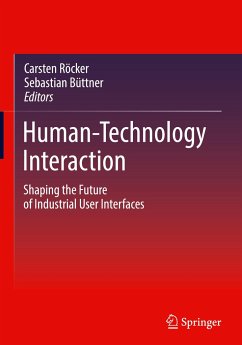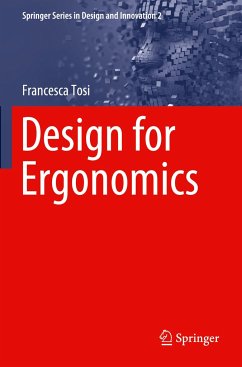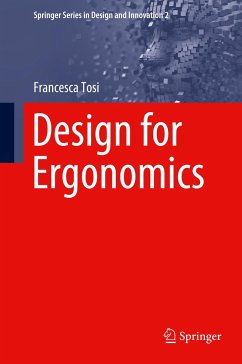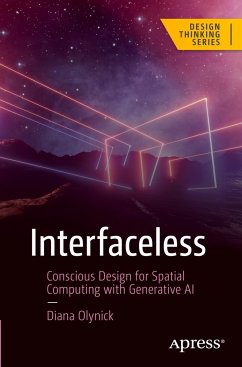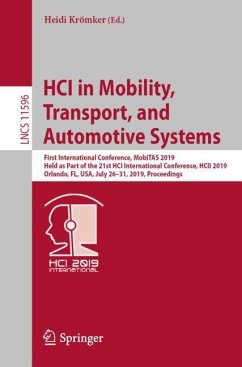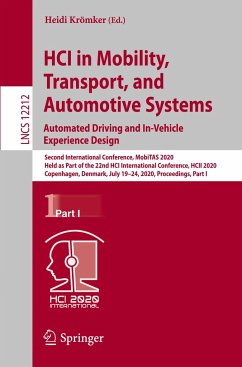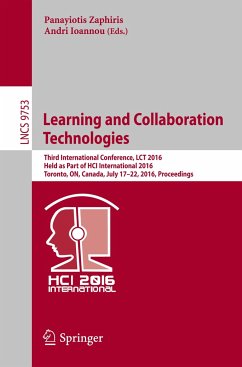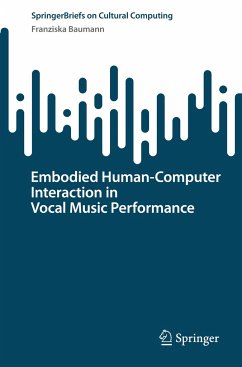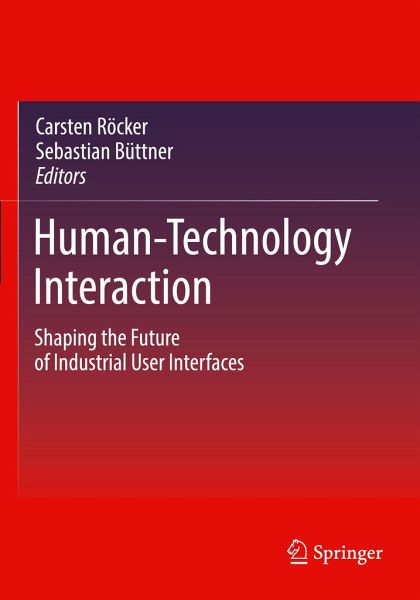
Human-Technology Interaction
Shaping the Future of Industrial User Interfaces
Herausgegeben: Röcker, Carsten; Büttner, Sebastian
Versandkostenfrei!
Versandfertig in 6-10 Tagen
38,99 €
inkl. MwSt.

PAYBACK Punkte
19 °P sammeln!
Digitalization and automation are leading to fundamental changes in the industrial landscape. In the German-speaking countries, this development is often summarized under the term Industry 4.0. Simultaneously, interaction technologies have made huge developments in the last decades. The use of mobile devices and touch screens is ubiquitous, augmented and virtual reality technologies have made their way into the market and new interaction concepts have become established. While new interaction technologies offer new possibilities for organizing or executing work in the context of Industry 4.0, ...
Digitalization and automation are leading to fundamental changes in the industrial landscape. In the German-speaking countries, this development is often summarized under the term Industry 4.0. Simultaneously, interaction technologies have made huge developments in the last decades. The use of mobile devices and touch screens is ubiquitous, augmented and virtual reality technologies have made their way into the market and new interaction concepts have become established. While new interaction technologies offer new possibilities for organizing or executing work in the context of Industry 4.0, the transformation of industrial processes also creates a need for new work practices.
This book sheds light on the interplay of Industry 4.0 and new interaction technologies. It presents selected research articles on the topic of Human-Technology Interaction in the context of Industry 4.0. Researchers from various disciplines present the current state of research with regard to futureinteractions with production environments to develop a common vision of how to design future interactions in the industrial domain.
In this context, various topics are covered: a detailed overview on assistive systems for supporting manual work is given, including technological and design aspects as well as implementation strategies. Industrial use-cases for extended reality (XR) technologies such as augmented and virtual reality (AR and VR) are presented, also covering aspects of how to author content in XR environments. The role of new work practices is examined, for example, by presenting concepts of gamification and human-machine teamwork for supporting well-being. Finally, topics of trust and technology acceptance are discussed in the context of Industry 4.0. Given this broad perspective, a vision is sketched of how to design future human-technology interactions in a way that realizes their full technical and human potential.
This book sheds light on the interplay of Industry 4.0 and new interaction technologies. It presents selected research articles on the topic of Human-Technology Interaction in the context of Industry 4.0. Researchers from various disciplines present the current state of research with regard to futureinteractions with production environments to develop a common vision of how to design future interactions in the industrial domain.
In this context, various topics are covered: a detailed overview on assistive systems for supporting manual work is given, including technological and design aspects as well as implementation strategies. Industrial use-cases for extended reality (XR) technologies such as augmented and virtual reality (AR and VR) are presented, also covering aspects of how to author content in XR environments. The role of new work practices is examined, for example, by presenting concepts of gamification and human-machine teamwork for supporting well-being. Finally, topics of trust and technology acceptance are discussed in the context of Industry 4.0. Given this broad perspective, a vision is sketched of how to design future human-technology interactions in a way that realizes their full technical and human potential.





